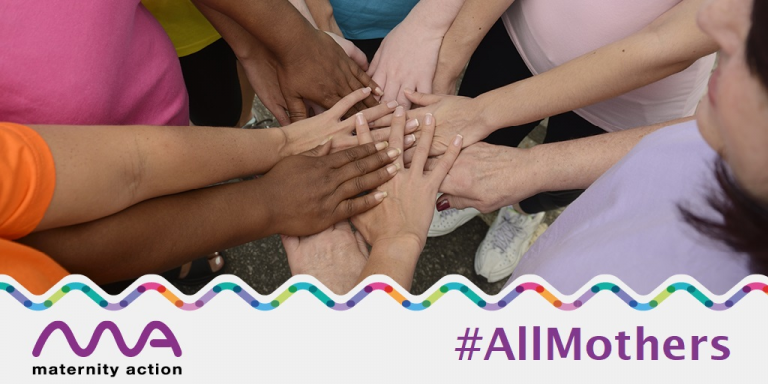Legal Challenge Launched Against ‘Hostile Environment’s’ Impact on Maternal Health of Migrants
By Surabhi Vanalia

20 November 2019
The ‘Hostile Environment’ adopted by the Home Office has been embedded into the delivery of health services. Charging for healthcare in particular affects the most disenfranchised in our society, including: victims of Female Genital Mutilation (FGM), victims of domestic violence, trafficked persons, and children.
What is the ‘Hostile Environment’
Undocumented migrants have no right to work or claim benefits, cannot rent from a private landlord or obtain a UK driving licence or open a bank account. These difficulties faced by undocumented migrant women are often compounded by domestic violence or relationship breakdowns, for which many do not seek the assistance of policing authorities for fear of compromising their precarious immigration status.
The charging regime
As part of the ‘Hostile Environment’ suite of policies the Government has introduced charges for hospital treatments for some patients born overseas. NHS maternity care is provided to women who are deemed to be ‘ordinarily resident’ in the UK, EU or EEA nationals, or those who are exempt from charging. No patient can be refused care at the point of treatment; however, they can be charged if they are found not to fall within these categories. The system therefore applies to short-term visitors and irregular or undocumented migrants.
Undocumented migrants include refused asylum seekers, visa overstayers, and migrants in breach of their visa conditions. This may mean that their residence, work permit, or other visas have expired. For undocumented migrant women this can be due to breakdown of the relationship upon which it was dependent. Others are victims of trafficking, who had little control over their arrival in the country and the conditions of their stay. Errors by the Home Office can additionally mean that undocumented migrants often include individuals who are subsequently found to have had entitlement to free NHS maternity care all along, but who have nevertheless been subject to punitive charging policies for the duration of the period wherein their status was being determined or appealed.
Health charging regulations also mean that all UK hospitals are now obliged to issue invoices to patients and actively pursue repayment of these debts. They are also required to report any debts over £500 to the Home Office, as these debts can jeopardise immigration applications.
Department of Health Guidance states that “Where an invoice is particularly large, or where the patient is genuinely willing to provide payment for services provided but cannot meet the payment in full, then trusts should agree with the patient, at the earliest opportunity, a meaningful repayment plan”.[1] Despite this guidance, NHS Trusts have varying policies on repayment and often do not accept plans which are within the capacity of the patients.
The Home Office argues that charging stops ‘health tourism’. However, statistics reveal that alleged ‘health tourism’ only costs 0.3% of total NHS spending.[2] The deterrent effect of the charging regime also creates higher costs for the healthcare providers in that chargeable patients will avoid care until the last-minute, for fear of falling foul of the Hostile Environment, necessitating costly last-minute emergency medical interventions.
The legal challenge
Maternity Action is a charity which is campaigning against charging destitute migrants, particularly vulnerable mothers, who are not seeking out vital treatments for fear of incurring extortionate charges and exposing themselves to punitive immigration policies.[3] The effect is that vulnerable mothers suffer from entirely avoidable and debilitating ante- and post-natal health conditions through not being able to access treatment.
Maternity Action’s current All Mothers Campaign calls for the immediate suspension of maternity care charges for migrant women until a thorough, independent review can assess the impact of NHS charging policy.
They have issued a Judicial Review application to challenge the charging measures, arguing that the charges are discriminatory, disproportionately affect women and children and are unjustified. Their aims are summarised as demanding that the Secretary of State for Health stop charging for:
- Destitute Families (who are mostly lone mothers with children) who are waiting for a decision from the Home Office on their immigration application.
- Pregnant women and women with new born babies for accessing maternity care.
- Victims of FGM, domestic and sexual violence for accessing NHS treatment.
Maternity Action UK advocates for changes to the charging system, including suspension of the charging regime for all maternity care, to ensure vulnerable migrant women’s access to health care services. Furthermore, they recommend that as long as charging continues, all hospital trusts should provide support on repayment in conjunction with a voluntary organisation. The trusts should also ensure proper safeguarding and charging procedures. Lastly, the Department of Health should carry out further cost-benefit analysis on the long-term health of women and children.
To support this vital and strategic campaign, please consider donating to their litigation fund here:
https://www.crowdjustice.com/case/stopmaternitycarecharging/
Much of the evidence from this article is sourced from Maternity Action’s report “What Price Safe Motherhood (2017)” and “The Impact of Health Inequalities of Charging Migrant Women for NHS Maternity Care (2017)”. These studies include personal interviews and sources upon which they have made their conclusions.
[1]https://assets.publishing.service.gov.uk/government/uploads/system/uploads/attachment_data/file/730171/Overseas_chargeable_patients__NHS_debt_and_immigration_rules.pdf
[2] This includes British expats who live overseas but still use the NHS services. https://fullfact.org/health/health-tourism-whats-cost/
 Close
Close

